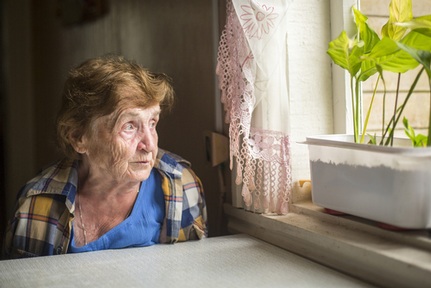CQC calls for NHS Trusts to improve mental health care after finding 'no notable improvement'
The Care Quality Commission has called for NHS Trusts to improve their out-of-hospital care of people with mental health problems ranging from mild depression to psychosis, after finding ‘no notable improvement’ in the past year.

The care regulator carried out a survey of over 13,000 people who had been treated and cared for in the community for their mental health problems.
When people were asked to rate their overall experience of their community mental health care on a scale of 0 to 10, a higher proportion of people reported a poorer experience compared to last year - 28 per cent rated it as five or lower, compared to 25 per cent in 2014.
Seven per cent up from five per cent in 2014 did not feel they were listened to and only 11 per cent up from nine per cent said they were given enough time to discuss their needs and treatments, with seven per cent up from six per cent in 2014 feeling they were not treated with dignity and respect.
Dr Paul Lelliott, deputy chief inspector of Hospitals (lead for mental health) called it “disappointing overall” and said: “In particular, the fact that over a quarter of people reported a poor experience of their care is worrying and must be acted on.
"Community mental health services play a vital role in supporting people with their mental health problems without needing to stay in hospital. It is imperative that the NHS gets this right.
"We urge all NHS trusts and in particular those that have performed poorly to reflect on what the survey tells them about what their patients think of their services and act on the findings."
The CQC looked at people’s experiences of the care and support they receive from community mental health services run by NHS trusts in England, such as in clinics and in their own homes for conditions ranging from mild depression to psychosis. The survey does not cover the care people have received for their mental health problems from GPs.
The annual survey also found that 96 per cent of people reported that they knew how to contact the person in charge of organising their care and services, if they have a concern about their care and 70 per cent reported that they ‘definitely’ felt listened to by the person or people they saw.
In addition 78 per cent of people on long term medication reported that they had had this reviewed (the same as in 2014).
Seventy-three per cent reported that they were ‘always’ treated with respect and dignity (a slight drop from 75 per cent in 2014).
The survey also shows some variation in performance between NHS trusts, with a small group performing poorly across many of the questions.
Those that scored ‘worse than expected’ for 10 per cent or more of all of the questions were Coventry and Warwickshire Partnership NHS Trust (inspected by CQC in January 2014 – not rated), Leicestershire Partnership NHS Trust (inspected by CQC in March 2015 and rated Requires Improvement), Lincolnshire Partnership NHS Foundation Trust (to be inspected by CQC in November 2015) and North Essex Partnership University NHS Foundation Trust (inspected by CQC in August 2015 – awaiting rating) as well as The Isle of Wight NHS Trust (inspected by CQC in June 2014 and rated Requires Improvement).
Those that scored ‘better than expected’ for 10 per cent or more of all of the questions were Bradford District Care NHS Foundation Trust (inspected by CQC in June 2014 and rated Good), Cheshire and Wirral Partnership NHS Foundation Trust (inspected in June 2015 – awaiting rating), Mersey Care NHS Trust (inspected by CQC in June 2015 and rated Good), NAVIGO Health and Social Care CIC (to be inspected by CQC in January 2016) and Tees, Esk and Wear Valleys NHS Foundation Trust (inspected by CQC in January 2015 and rated Good).
The community mental health survey is conducted every year by CQC. It represents the experiences of over 13,000 people who received specialist care or treatment for a mental health condition in 55 NHS trusts in England between September and November 2014.
Mind estimates that at least 1.6 million people across the UK have accessed community mental health services in the last year.
Latest News
 29-Jul-24
Dementia Bus gives carehome.co.uk staff insight into life with dementia
29-Jul-24
Dementia Bus gives carehome.co.uk staff insight into life with dementia
 27-Jul-23
UK's top home care agencies in 2023 revealed
27-Jul-23
UK's top home care agencies in 2023 revealed
 30-Nov-22
A quarter of older people keep their falls secret from family
30-Nov-22
A quarter of older people keep their falls secret from family
 29-Nov-22
'Covid-19 has not gone away' say terminally ill
29-Nov-22
'Covid-19 has not gone away' say terminally ill
 28-Nov-22
IT consultant who received poor care opens 'compassionate' home care business
28-Nov-22
IT consultant who received poor care opens 'compassionate' home care business